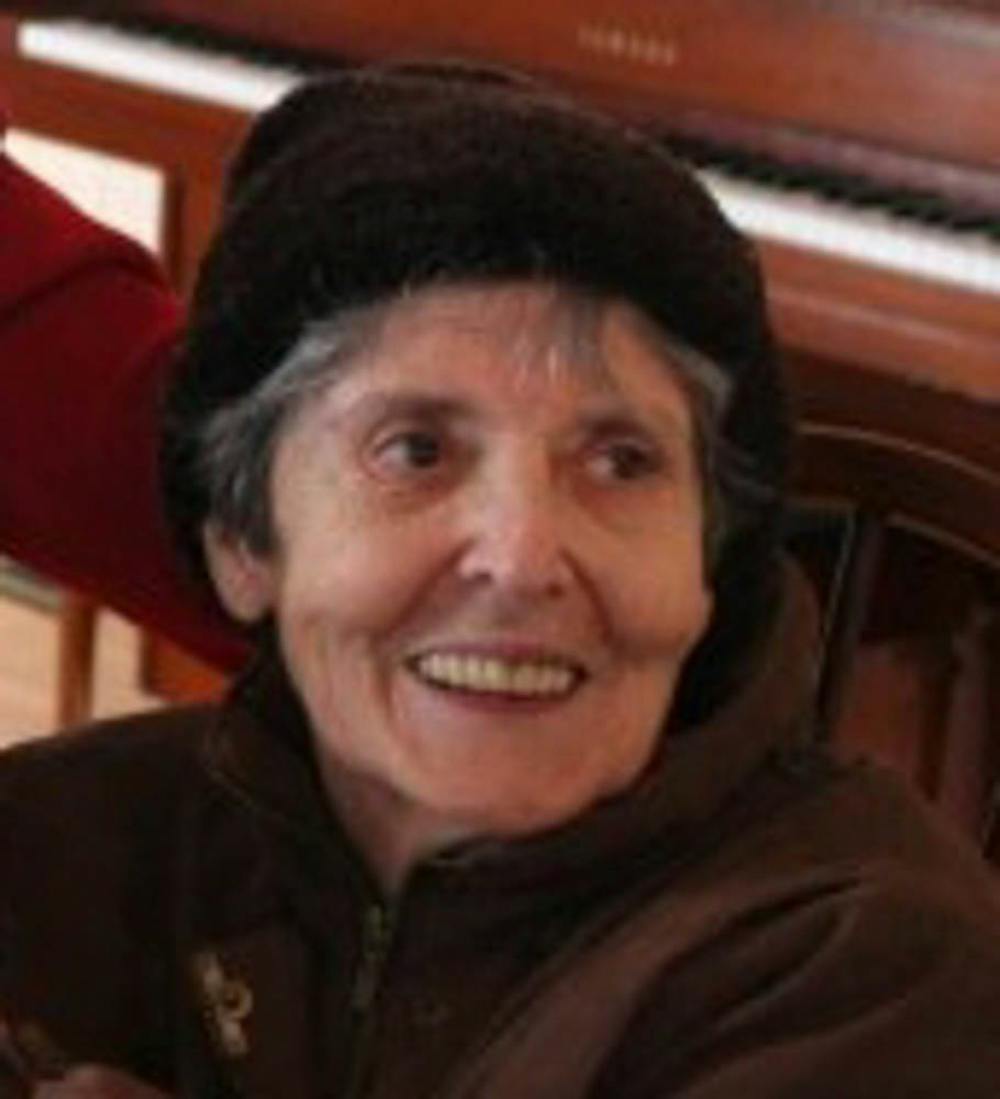Last Sunday, the Granoff Center for the Creative Arts hosted a screening of “The Rest I Make Up,” a documentary chronicling the life of the late Maria Irene Fornes, a Cuban-American avant-garde playwright, and her struggle with Alzheimer’s disease.
The film touches on Fornes’ family, career and past relationships and follows Fornes toward the end of her life in New York, Cuba and Miami. Fornes is vivacious on camera as she sings, dances and explains the world through her eyes, and the tragic nature of her dementia never overshadows her personality and joy. Michelle Memran, the director of the film, became friends with Fornes while interviewing her for an article, and their friendship becomes a focal point of the film. Memran explained that she viewed the movie as a collaboration between herself and Fornes, letting Fornes take the creative lead.
After the screening, a panel answered questions about the documentary. Moderated by Katie Pearl, a producer of the film, the panel included Memran, Patricia Ybarra, professor and chair of the theatre arts and performance studies department, and Lori Daiello, assistant professor of neurology at the Alpert Medical School. The conversation focused on Fornes’ influence in the world of theater, the making of the film and research on Alzheimer’s.
Fellow playwrights and students of Fornes testify to her influence and brilliance throughout the film, often decrying the fact that so many people have never heard about her work. Known in the theater community as “Mother Avant-Garde,” Fornes wrote over 40 plays and taught many writing workshops. “One irony about Irene — given how intuitive she was — is that the primary attention she’s gotten in her life has been as much through academic scholarship as it has been through professional theater, just because she didn’t conform very easily to commercial norms of … playwriting,” Ybarra said. Ybarra went on to describe Fornes’ impact on Latinx playwriting through her plays and teaching.
The documentary took over 15 years to make, though the majority of the film was shot between 2003 and 2006, Memran said. In the midst of editing, Memran decided not to finish making the movie; however, a grant from the University allowed Memran to spend two months in the Granoff Center editing. “I realized that there was this beautiful film in there somewhere, and that she was just too captivating, and you needed to see her. … Without coming back to Brown, I don’t know if I ever would have actually finished the film,” Memran said.
During the Q&A, a member of the audience asked Memran how she decided to stop shooting and end the film. “When she stopped recognizing what we’re doing, for me the collaboration was no longer. I wanted the film to be as much Irene’s as it was mine, and there was a sense of maintaining her dignity,” Memran replied.
Memran also noted ethical and stylistic problems, explaining that both she and Fornes were unreliable narrators because of their friendship and Fornes’ memory loss. “How do you document somebody’s life who is remembering in ten minute increments?” Memran asked.
Daiello, who works in clinical research on Alzheimer’s, also commented on the nature of creating films about Alzheimer’s. “I generally don’t like to watch films about this illness … but what you brought out was the personhood that still shines through when someone has this illness,” Daiello said.
Fornes’ personality radiates through the documentary, even during moments of disheartening memory loss. An allusion to her creative way of remembering, living and writing can be found in the film’s title, which comes from one of Fornes’ songs in her play, “Promenade.” The quote reads, “I know everything. Half of it I really know. The rest I make up.”





